Frontpage News (3259)
GSK calls for proposals for research into non-communicable diseases in Sub-Saharan Africa
Written by Super User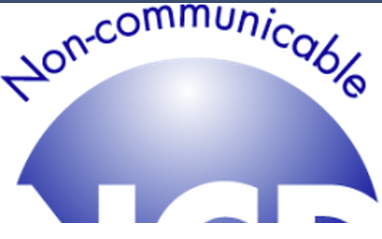 GSK today launched its first call for proposals for its Africa NCD Open Lab, to support much-needed scientific research into non-communicable diseases (NCDs) in Africa. Up to £4m will be available in this first funding round, to support successful proposals from researchers in Côte d’Ivoire, Cameroon, Ghana, The Gambia, Nigeria, Kenya, Uganda and Malawi.
GSK today launched its first call for proposals for its Africa NCD Open Lab, to support much-needed scientific research into non-communicable diseases (NCDs) in Africa. Up to £4m will be available in this first funding round, to support successful proposals from researchers in Côte d’Ivoire, Cameroon, Ghana, The Gambia, Nigeria, Kenya, Uganda and Malawi.
The Africa NCD Open Lab was established by GSK earlier this year, with a commitment of £25m funding over five years, as part of a series of strategic investments in sub-Saharan Africa. In this region, and across developing countries, non-communicable diseases, such as cancer and diabetes, are becoming more prevalent, and we need to learn more about how – and why – these diseases manifest differently in this setting.
African Experts Meet to Discuss the Establishment of the African Medical Agency (AMA)
Written by Super User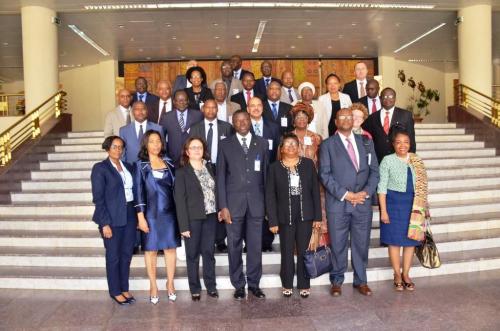 Yesterday 25th November 2014 started the first two-day meeting of the Technical Experts on the Establishment of the African Medicines Agency at African Union headquarters in Addis Ababa, Ethiopia. The meeting is taking place in a context of a Global Public Health Emergency due to the largest Ebola Virus Disease (EVD) outbreak ever, affecting West Africa particularly in Guinea, Liberia and Sierra Leone and the fact that there are weak and disorganized health systems in most of the African Countries to tackle the potential outbreaks in future.
Yesterday 25th November 2014 started the first two-day meeting of the Technical Experts on the Establishment of the African Medicines Agency at African Union headquarters in Addis Ababa, Ethiopia. The meeting is taking place in a context of a Global Public Health Emergency due to the largest Ebola Virus Disease (EVD) outbreak ever, affecting West Africa particularly in Guinea, Liberia and Sierra Leone and the fact that there are weak and disorganized health systems in most of the African Countries to tackle the potential outbreaks in future.
Canada Commits $45m To Train Nigerian Health Workers
Written by Super User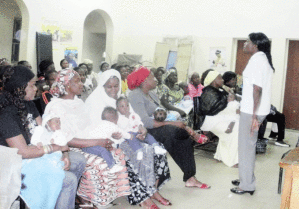 The Canadian Government on Tuesday launched $45 million project for enhancing the ability of frontline health workers to improve health in Nigeria.
The Canadian Government on Tuesday launched $45 million project for enhancing the ability of frontline health workers to improve health in Nigeria.
Canadian High Commissioner to Nigeria, Perry Calderwood stated the project shows Canada’s committed efforts to globally improve maternal, newborn and child health in Bauchi and Cross River States.
PPSSAGHP, HFN, FMOH makes presentation to the CCMDFTH
Written by Super User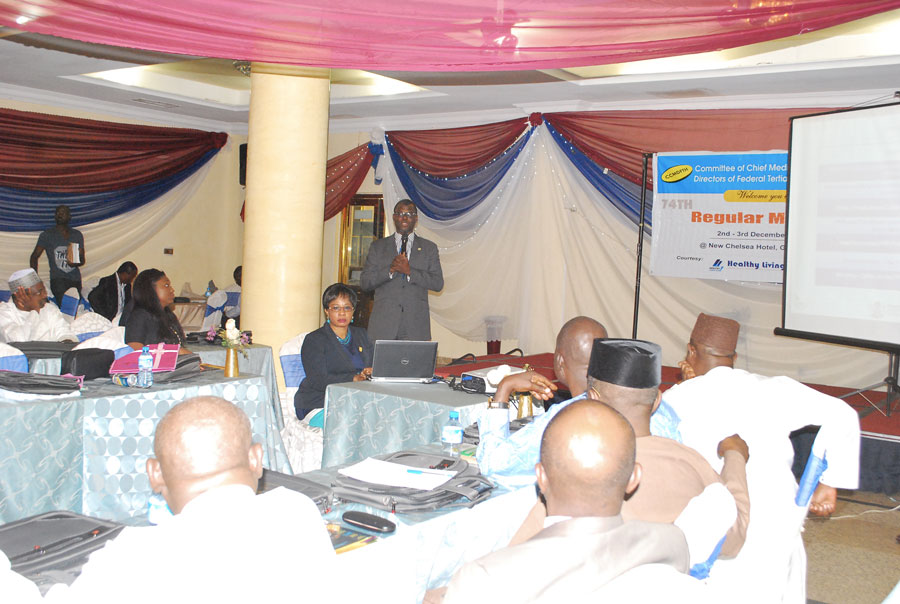 In line with the goal of the HFN to support the institution of a revised Public- Private Partnership Policy for the Health Sector, a joint stakeholder group - PPSAGHP called for the support of the Chief Medical Directors And Medical Directors Of Federal Tertiary Hospitals (CCMDFTH) during the recently concluded 2- day CCMDFTH meeting held in Abuja on the 3rd of December 2014.
In line with the goal of the HFN to support the institution of a revised Public- Private Partnership Policy for the Health Sector, a joint stakeholder group - PPSAGHP called for the support of the Chief Medical Directors And Medical Directors Of Federal Tertiary Hospitals (CCMDFTH) during the recently concluded 2- day CCMDFTH meeting held in Abuja on the 3rd of December 2014.
HFN represents private health sector practitioners at healthcare policy review meeting
Written by Super UserIn line with efforts to create a conducive environment for the Private Health Sector, the HFN represented the Private Health Sector at the recently concluded 2 –day Policy review meeting organized by the Federal Ministry of Health, PPP, Diaspora Unit.
At this meeting, Proposed Policies on Public and Private Partnerships and Investment Incentives for the Healthcare industry were discussed.
The HFN Advocates for a review of recent CBN directive on Foreign Exchange – Takes toll on Investors as Healthcare costs is up 20%
Written by Super UserThe recent exclusion of “Finished Goods” from the foreign exchange RDAS window has created concern across the entire healthcare sector as this development will increase the cost of healthcare commodities by at least 20 %.
The HFN has therefore appealed to the Central Bank and Ministries of Health and Finance to look into ways to ensure that Healthcare commodities and equipment are excluded from the list of “Finished goods” suggesting the model applied with Value Added Tax where healthcare tops the list of the items excluded from this tax structure.
Please click HERE see the front page Business Day article on CBN Directive.
HFN Advocacy drive to the deputy senate president
Written by Super UserDuring a courtesy visit made by the Ministerial Committee to establish World Class hospitals in 6 geo political zones of the country to the Deputy Senate President Mr. Ike Ekwerenmadu on the 20th October, 2014, the HFN President speaking on behalf of the Private Health Sector strongly advocated that the senate in addition to ensuring the National Health Insurance and National Health Bills are passed , also should look into the area of incentives to encourage investors especially approving zero % duty tax on Medical Equipment and Pharmaceutical products.
National Health Bill passed into law by President Goodluck Ebele Jonathan
Written by Super User In a development that sure will pass for the greatest thing to happen in the health sector in the year 2014 and one of the best presidential assents under the administration of President Goodluck Jonathan given to any legislation, the National Health Bill has finally been passed into law. This happened last night and was eventually confirmed by Dr. Reuben Abati on his Twitter account. Titled, A Framework for the Regulation, Development and Management of a National Health System and set Standards for Rendering Health Services in the Federation, and Other Matters Connected there with, 2014, itcomes as a big source of celebration for the Healthcare Federation of Nigeria (HFN), having invested a lot of efforts into the passage of the bill.
In a development that sure will pass for the greatest thing to happen in the health sector in the year 2014 and one of the best presidential assents under the administration of President Goodluck Jonathan given to any legislation, the National Health Bill has finally been passed into law. This happened last night and was eventually confirmed by Dr. Reuben Abati on his Twitter account. Titled, A Framework for the Regulation, Development and Management of a National Health System and set Standards for Rendering Health Services in the Federation, and Other Matters Connected there with, 2014, itcomes as a big source of celebration for the Healthcare Federation of Nigeria (HFN), having invested a lot of efforts into the passage of the bill.
Healthcare Financing Under The CBN Real Sector Support Facility
Written by Super UserINTRODUCTION
The Central Bank of Nigeria (CBN), has established a Real Sector Support Facility (RSSF) as part of efforts to enhance output growth, value added productivity, and job creation. This will be used to support large enterprises for start-ups and expansion financing needs of between N500 million and N10 billion. Businesses within the scope of the Facility are manufacturing, agricultural value chain, and select service sub-sectors – hospitals, schools and hotels.
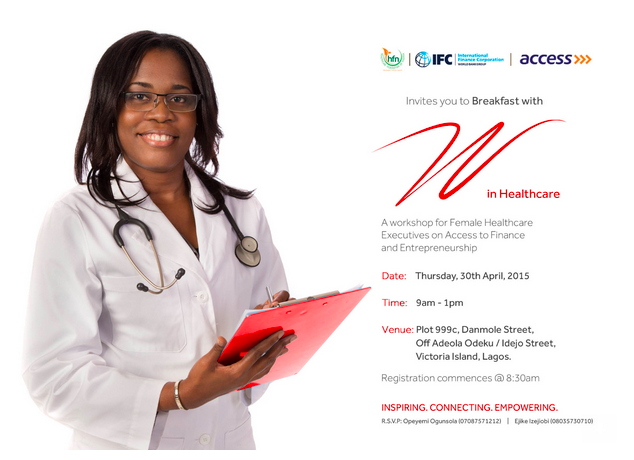 Are You Ready For The Breakfast Event?
Are You Ready For The Breakfast Event?
Kindly come along with up to three female members of staff in technical, leadership and management positions within your organisation to expand the reach to women in healthcare. This workshop covers various aspects of Female Enterpreneurship and Access to Finance.
- Networking amongst female healthcare leaders and practitioners these goals.
- Focus on accessing finance for business growth.
- To be graced by high-level female healthcare entrepreneurs and business experts.
- To strengthen the female participation in health care business.
- Discussing the extant challenges in healthcare financing for female entrepreneurs and proffering viable solutions
- Provide information on available financial incentives in the industry.
More...
Federal Neuropsychiatric Hospital Enugu turned to warzone as JOHESU, management clash
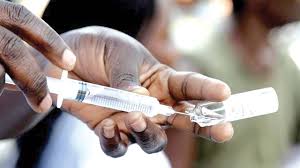 The mood at the Federal Neuropsychiatric Hospital Enugu was very tense today as the management of the hospital led by the Medical Director, Dr. Jojo Onwuekwe unleashed actions best described as tyrannical on the members of the Joint Health Sector Union (JOHESU) who commenced an indefinite strike action to agitate for many anomalies in the hospital.
The mood at the Federal Neuropsychiatric Hospital Enugu was very tense today as the management of the hospital led by the Medical Director, Dr. Jojo Onwuekwe unleashed actions best described as tyrannical on the members of the Joint Health Sector Union (JOHESU) who commenced an indefinite strike action to agitate for many anomalies in the hospital.
A staff of the hospital spoke exclusively and anonynously to HealthNewsNG.com. The staff who is also a first witness to the whole incident said JOHESU embarked on the strike for many reasons including:
Federal Ministery of Health, NACA to destroy medical products worth N417million
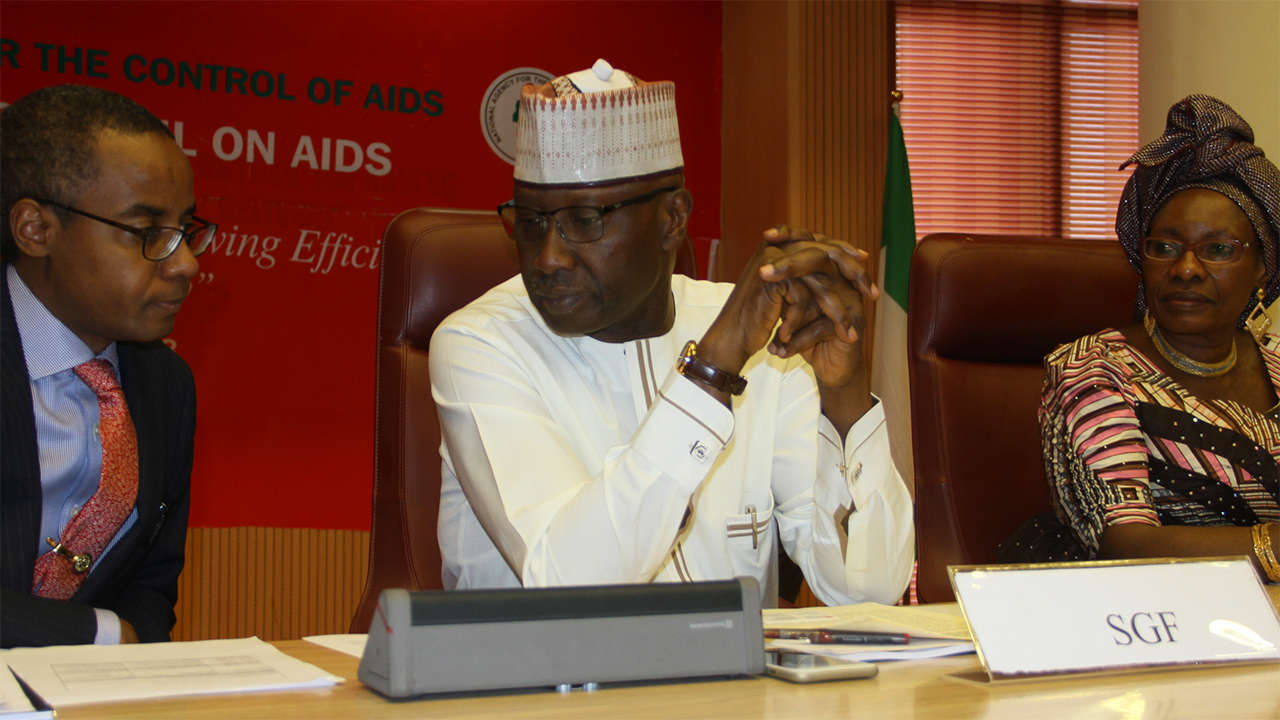 The Federal Ministry of Health has concluded arrangements with the National Agency for the Control of Aids (NACA) to destroy malaria and HIV drugs worth N417m.
The Federal Ministry of Health has concluded arrangements with the National Agency for the Control of Aids (NACA) to destroy malaria and HIV drugs worth N417m.
According to a PUNCHNG report, the drugs will be destroyed because they were left to expire without distribution at the stores of the Federal Ministry of Health located in Oshodi, Lagos state. The drugs had different expiry dates and were purchased between 2011 and 2012. They comprised of different medications for HIV, tuberculosis and Malaria as well as antibiotics, children’s drugs and HIV test kits.
 WorldStage Newsonline—The aggrieved health workers under the aegis of the Nigerian union of Allied Healthcare Professionals (NUAHP) has suspended its three week long strike with members ordered to resume work on Wednesday.
WorldStage Newsonline—The aggrieved health workers under the aegis of the Nigerian union of Allied Healthcare Professionals (NUAHP) has suspended its three week long strike with members ordered to resume work on Wednesday.
However, the local strike in FMC Owerri is to continue until all the local issues and demands are addressed.
Comrade Dr. Obinna Ogbonna, National President of the Union at a press conference on Tuesday called on members across the country to return to work, saying the National Administrative council of the union on 4th of June, 2015, having assessed the impact of the strike through responses from the unit branches across the nation agreed that it was very effective nationwide and had drawn the attention of President Buhari to the pending issues in the sector that the immediate past government left unresolved
More than 95% of the global population has at least one health problem, study finds
 The largest and most in-depth study of global health trends to date finds that more than 95% of the world's population has health problems, with more than a third of us experiencing five or more conditions. An older man in a hospital bed Researchers identified an increase in the number of years lived with a disability among the global population, which they attribute to population growth and aging.
The largest and most in-depth study of global health trends to date finds that more than 95% of the world's population has health problems, with more than a third of us experiencing five or more conditions. An older man in a hospital bed Researchers identified an increase in the number of years lived with a disability among the global population, which they attribute to population growth and aging.
The results of the Global Burden of Disease Study 2013 (GBD 2013) were recently published in The Lancet. Lead study author Prof. Theo Vos, of the Institute of Health Metrics and Evaluation at the University of Washington in Seattle, and colleagues set out to calculate up-to-date estimates of disease and injury incidence and prevalence among 188 countries between 1990 and 2013, usingdata from more than 35,000 sources.






